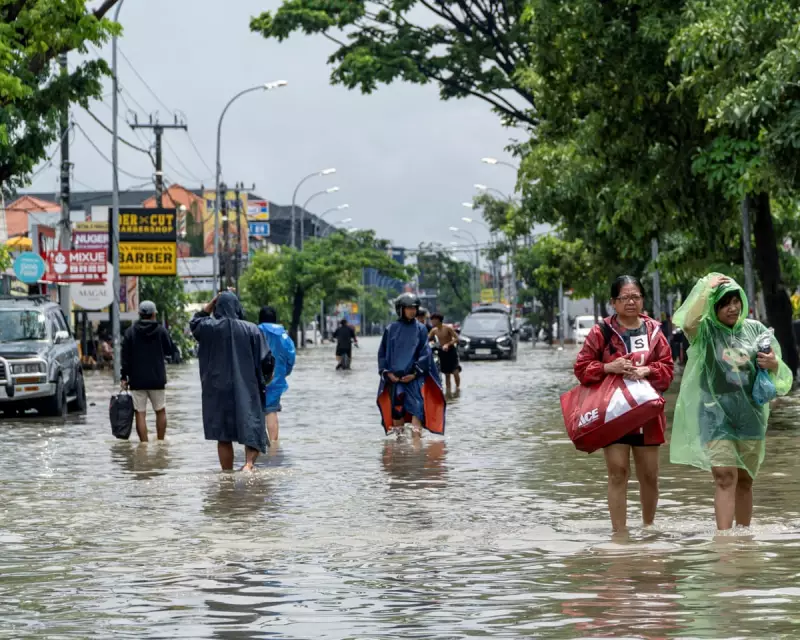
The Indonesian paradise of Bali is confronting its most severe flooding crisis in ten years after being battered by relentless torrential rains, triggering catastrophic landslides and submerging entire communities under water.
Emergency services are battling what local officials describe as a "climate emergency of unprecedented scale" as rising waters have swept through villages, destroyed critical infrastructure, and left thousands of residents stranded without power or clean water.
Regional Climate Crisis Escalates
This devastating weather event isn't isolated to Bali alone. Simultaneous extreme weather patterns are creating havoc across South Asia and Australia, suggesting a coordinated regional climate phenomenon.
In India and Pakistan, similar torrential downpours have caused deadly flooding in densely populated areas, overwhelming drainage systems and emergency response capabilities. Meanwhile, eastern Australia is experiencing its own severe weather system, with Queensland and New South Wales facing flash flooding alerts.
Humanitarian Crisis Unfolds
The human cost continues to mount as rescue operations struggle to reach isolated communities. Early reports indicate:
- Hundreds of homes completely submerged or destroyed by floodwaters
- Critical road networks severed by landslides and washed-out bridges
- Tourist areas evacuated as emergency services prioritize resident safety
- Agricultural lands devastated, threatening food security in the region
Local hospitals are reportedly overwhelmed with casualties, while disease outbreaks from contaminated water sources pose a secondary health crisis.
Climate Experts Sound Alarm
Meteorologists are linking this simultaneous extreme weather across multiple regions to accelerating climate change patterns. The increasing frequency and intensity of such events, they warn, represents a new normal that existing infrastructure and emergency protocols are ill-equipped to handle.
"What we're witnessing across Bali, South Asia, and Australia isn't isolated bad weather—it's the manifestation of our changing climate system," stated Dr. Evelyn Shaw, climate scientist at the Global Environmental Institute. "These simultaneous extreme events demonstrate how interconnected our climate systems have become."
Emergency Response and International Aid
Indonesian authorities have deployed military units to assist with evacuation efforts, while international aid organizations are mobilizing resources. The scale of the disaster, however, is testing response capabilities across all affected regions.
Environmental agencies are calling for immediate international cooperation on climate resilience infrastructure, arguing that traditional disaster response measures are no longer sufficient for the scale of climate-related emergencies now occurring.





